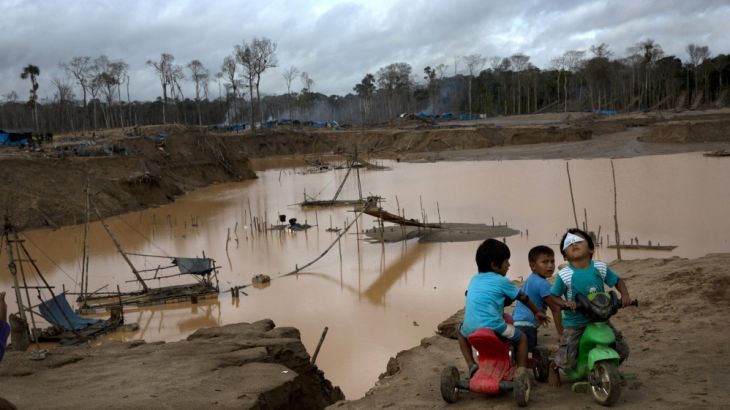Peru declares emergency after oil spill hits rivers
Communities told not to eat fish after pipeline burst pours 3,000 barrels of crude oil into Chiriaco and Morona Rivers.

Peru has declared an emergency three weeks after a major oil pipeline burst, affecting two rivers in the country’s northwest.
The pipeline spilled 3,000 barrels of crude oil into the Chiriaco and Morona rivers, which are the main source of water and food for several indigenous communities.
Keep reading
list of 4 itemsWhat’s slowing down America’s clean energy transition? It’s not the cost
Global coal use to reach record high in 2023, energy agency says
COP28 Dubai is over: Four key highlights from the UN climate summit
The government has told these communities not to eat fish from the polluted waters.
Teolinda Lopez, an Aguajun, told Al Jazeera that her family is now forced to survive on bananas and yucca.
“They’re coming in and contaminating the forest more and more,” she said.
“Sickness is coming, the river is polluted. Before they didn’t use to control the fish or what you ate, but the fish are now are sick just like people.”
Fish now safe
The broken pipeline reportedly used to transport between 5,000 and 6,000 oil barrels per day.
The pipeline is owned by Petro Peru, a state-owned oil company.
The leader of the emergency-response team for Petro Peru, Victor Huarcaya, who is in charge of the spill clean-up, told Al Jazeera that fish was now safe.
“As Petro Peru, we say it’s safe to bathe and you can eat the fish, but the population distrusts us because they don’t know oil and its behaviour,” he said.
The oil company has been accused of a slow reaction to the spill – it only started providing food, water and medical attention weeks after the crisis, which has affected the health of more than 200 people.
Peru’s main oil pipeline was built more than 30 years ago. This has been the third oil spill in less than a month.
Community residents have said that at least eight indigenous communities rely on the rivers for water.